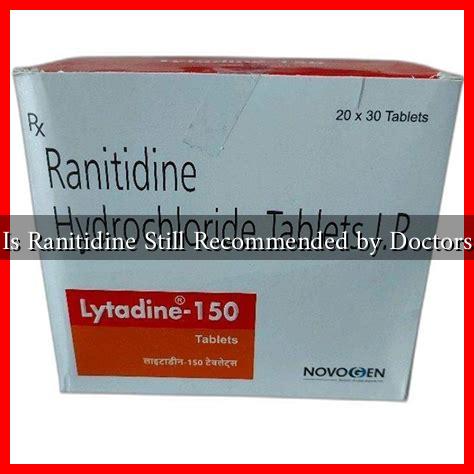-
Table of Contents
Is Ranitidine Still Recommended by Doctors?
Ranitidine, a medication commonly used to treat conditions like gastroesophageal reflux disease (GERD) and peptic ulcers, has been a staple in many households for decades. However, recent developments have raised questions about its safety and efficacy. This article explores whether ranitidine is still recommended by doctors, the reasons behind its controversial status, and what alternatives are available for patients.
The Rise and Fall of Ranitidine
Ranitidine belongs to a class of drugs known as H2 blockers, which work by reducing the amount of acid produced by the stomach. It has been widely prescribed for conditions such as:
- Gastroesophageal reflux disease (GERD)
- Peptic ulcers
- Zollinger-Ellison syndrome
- Heartburn and indigestion
For many years, ranitidine was considered a safe and effective treatment option. However, in September 2019, the U.S. Food and Drug Administration (FDA) announced that some ranitidine products contained low levels of N-nitrosodimethylamine (NDMA), a substance classified as a probable human carcinogen. This revelation led to widespread recalls and a reevaluation of the drug’s safety.
Current Recommendations from Health Authorities
Following the discovery of NDMA in ranitidine, health authorities around the world took action. The FDA recommended that patients stop using ranitidine and dispose of any remaining products. The agency stated:
- “Patients taking prescription ranitidine should consult their healthcare professional for alternatives.”
- “Over-the-counter ranitidine products should not be used.”
As a result, many healthcare providers have ceased recommending ranitidine altogether. The American Gastroenterological Association (AGA) and other medical organizations have also advised against its use, emphasizing the importance of patient safety.
Alternatives to Ranitidine
With the discontinuation of ranitidine, patients are left seeking alternative treatments for acid-related conditions. Some commonly recommended alternatives include:
- Proton Pump Inhibitors (PPIs): Medications like omeprazole and esomeprazole are effective in reducing stomach acid and are often prescribed for GERD and ulcers.
- Other H2 Blockers: Famotidine and nizatidine are alternatives within the same class that do not have the same safety concerns as ranitidine.
- Antacids: Over-the-counter options like Tums and Maalox can provide quick relief for occasional heartburn.
Patients should consult their healthcare providers to determine the most appropriate treatment based on their specific conditions and medical history.
Case Studies and Statistics
Several studies have highlighted the risks associated with ranitidine. A study published in the Journal of Clinical Gastroenterology found that patients using ranitidine had a higher risk of developing certain cancers compared to those who did not use the drug. Additionally, a survey conducted by the FDA revealed that nearly 80% of patients were unaware of the potential risks associated with ranitidine.
Conclusion
In light of the recent findings regarding the safety of ranitidine, it is clear that this medication is no longer recommended by doctors. The potential risks associated with NDMA contamination have led to significant changes in treatment protocols for acid-related conditions. Patients are encouraged to explore alternative medications and consult with their healthcare providers to find safe and effective options.
As the medical community continues to prioritize patient safety, it is essential for individuals to stay informed about the medications they are taking. The discontinuation of ranitidine serves as a reminder of the importance of vigilance in pharmaceutical safety and the need for ongoing research in the field of medicine.

